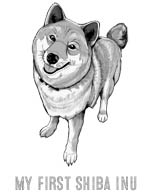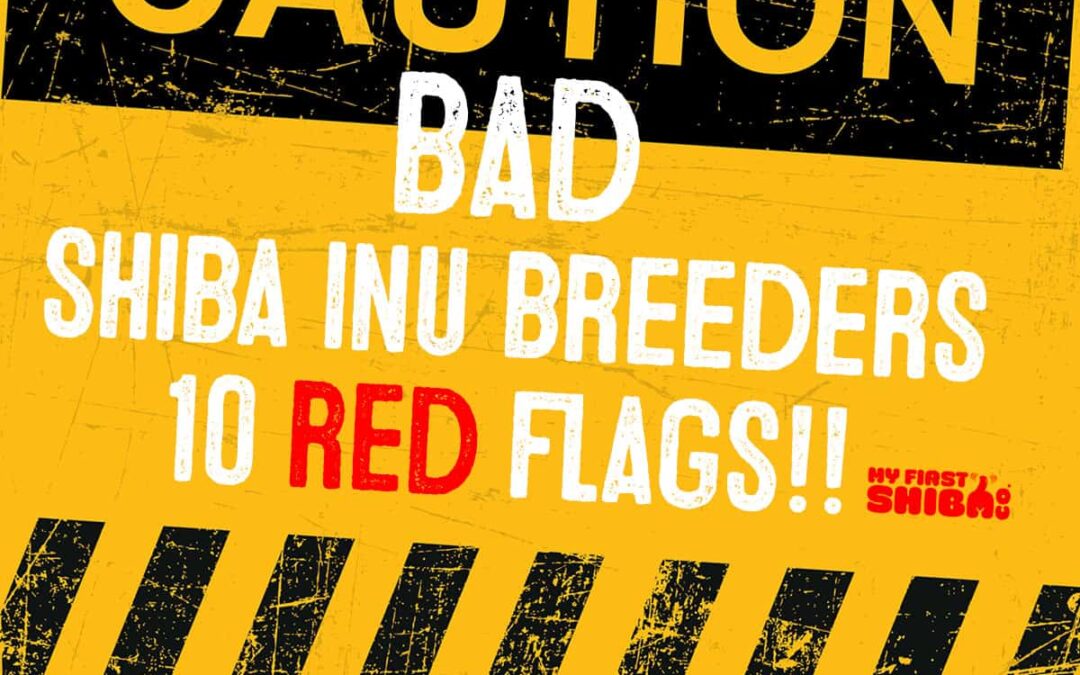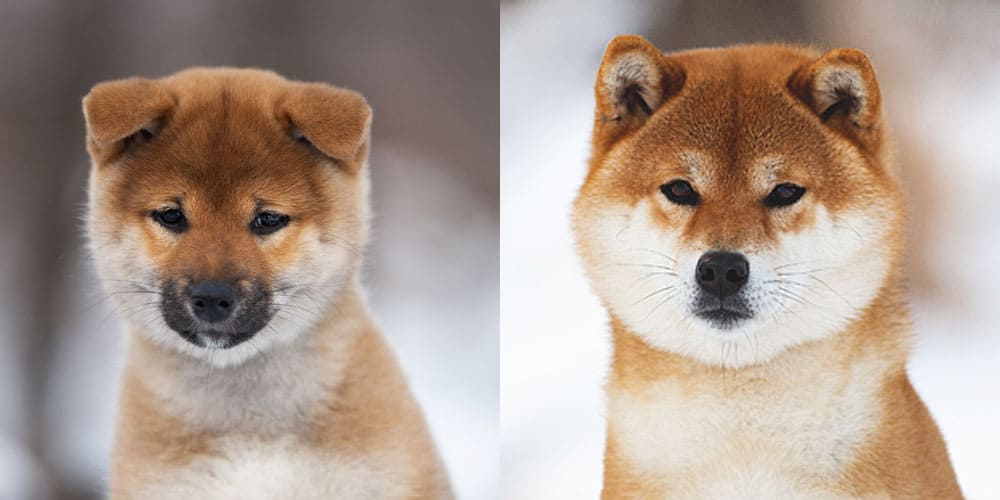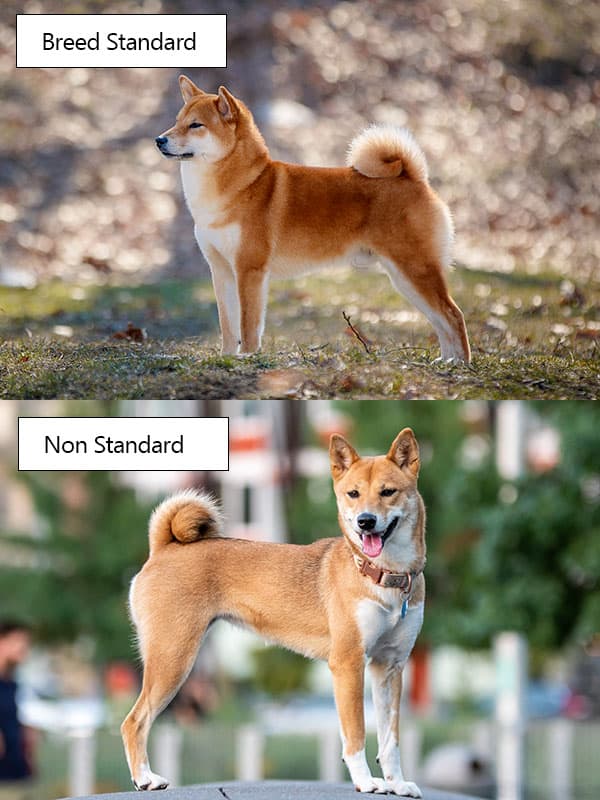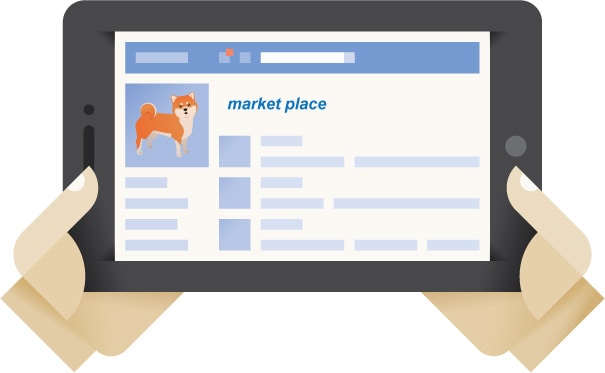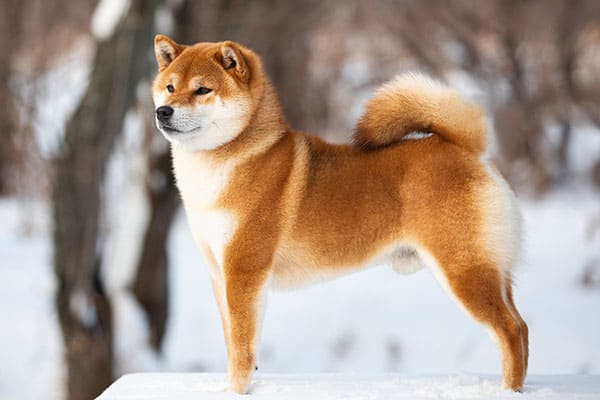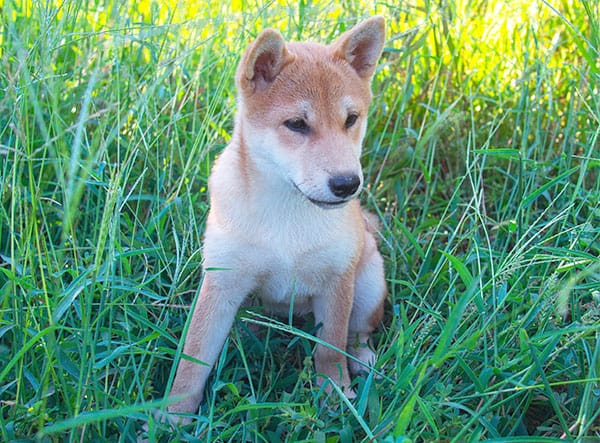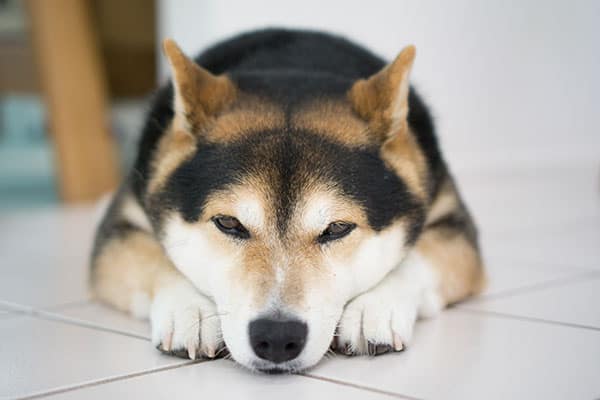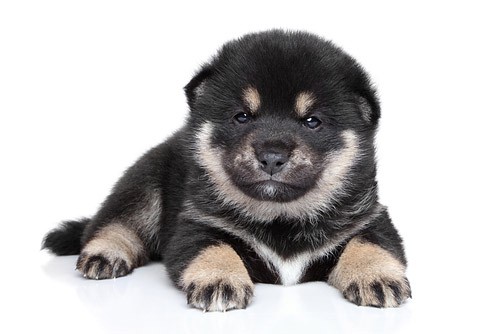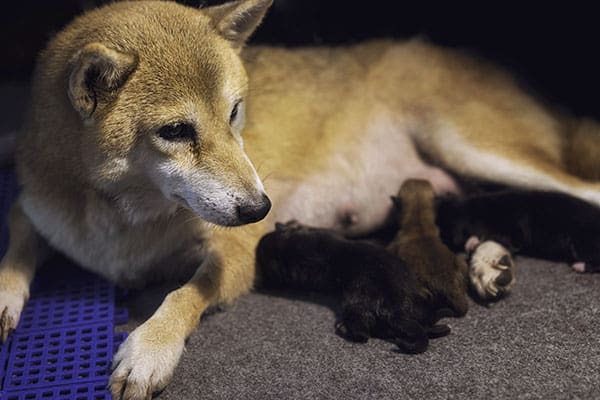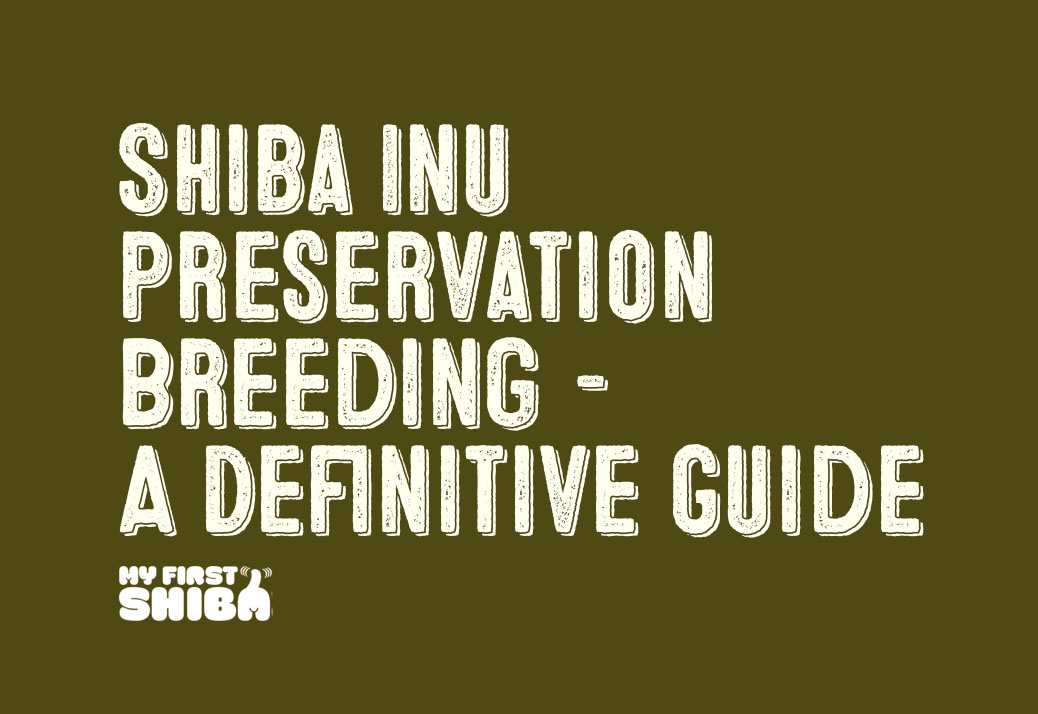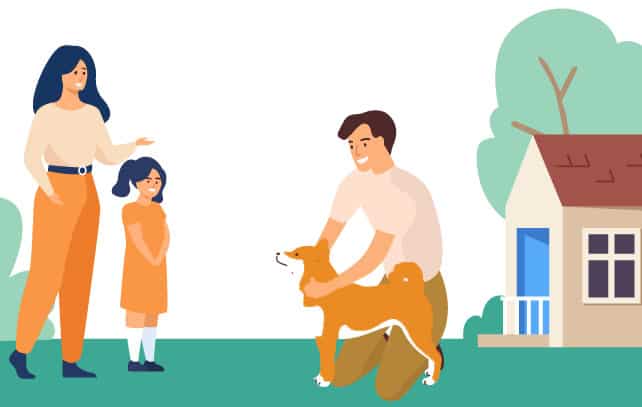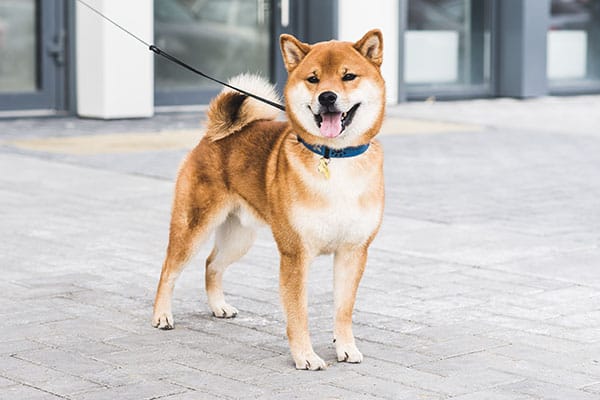On occasion, our posts contain affiliate links. However, we only recommend products that we truly believe in. For more information, visit my privacy policy page.
Nothing beats the excitement and exhilaration of bringing home a new puppy to the family.
The anticipated cuteness is almost too much to handle.
With Shiba Inu puppies, or “potatoes” – the cuteness factor goes into overdrive.
But wait.
Seriously. Wait.
Finding a quality, healthy Shiba Inu puppy is difficult.
The waitlists are long and availability is scarce.
So what about the Shiba puppies that do seem to be “available” – and for a pretty good “price”?
Unfortunately, in these cases, the puppy is likely from either a low quality breeder or worse yet – a puppy mill.
Why You DEFINITELY Don’t Want a Shiba Inu Puppy From a BAD Breeder
If you truly want a Shiba Inu puppy that must mean you researched the breed, history, and temperament.
Right?
These things all matter.
And so if you truly want a Shiba Inu, you of course want a Shiba Inu that actually looks like a Shiba Inu correct?
But unfortunately, you’ll likely never receive a Shiba that meets standards from a low quality breeder.
Shibas that come from low quality breeders are often mismarked, incorrectly proportioned and less healthy than properly bred Shiba Inus.
So although you’ll save thousands of dollars initially, the later costs and consequences affecting your Shiba Inu’s life are not worth one bit of the savings.
Read on to learn how to easily spot and avoid a bad Shiba Inu breeder.
#1 – Advertises on Social Media, Craigslist
Reputable Shiba Inu breeders treat their puppies like their own children and would NEVER EVER hawk them on Craigslist or Facebook Marketplace to anyone willing to pay their fee.
The pandemic as well as the Dogecoin fiasco has caused the demand for Shiba puppies to skyrocket all around the world.
Most reputable Shiba Inu breeders have waiting lists pushing on to about two years at this point.
Additionally, reputable Shiba Inu breeders are extremely selective on who gets their pups. There’s usually application forms, interviews, home checks, etc.
If anybody is willing to sell you a puppy simply by providing your payment info – run. Away.
Stay away from any breeder that sells their puppy on Internet “puppy” site pages as well as Craigslist, and Facebook marketplace.
Any breeder that uses these methods are likely to be low quality, volume breeders “fishing” for unknowing customers.
Stay clear from local pet “stores” or random places (garage sales / flea markets) that advertise puppies for sale.
Quality dogs never (or rarely) need to be “advertised”.
With regards to Facebook, note there is a difference between a reputable breeder having a standard Facebook page versus a non-reputable breeder having a “puppy page” clearly with the intent of selling puppies.
Reputable breeder Facebook pages provide information about their kennel, their achievements, their projects, and of course their dogs.
Non reputable breeders use Facebook simply to sell puppies and nothing else.
#2 – The “Proof” Is In The Pics
Nice looking Red Shiba Inu with good body structure / proportion
It’s actually easy for those experienced with Shiba Inu standards to quickly spot poor quality Shiba breeders simply by looking at the photos the breeder provides.
Unfortunately, many new Shiba Inu owners have little knowledge on this matter which is a problem in itself.
If you truly want a Shiba Inu, you need to do all you can to study the breed’s history, temperament, health, and physical appearance.
Poorly-bred Shiba Inu – Although a perfectly fine and beautiful dog, this dog is simply does not conform to Shiba Standards. Note small head to body ratio, narrow forehead, skinny cheeks, large pointy ears
You’ll then understand acceptable coat colors and coat length, body size and proportions, angulation and gait.
Low quality Shiba Inu breeders will unabashedly show their low quality Shiba Inu pups and adults on their websites and social media pages because their target audience is those “that don’t know any better”.
So it’s up to you to understand Shiba Inu standards and understand what a properly conformed Shiba Inu puppy and adult should look like.
#3 – Mismarked Coats and Coat Length
Poor quality Shiba Inu breeders often produce pups with mismarkings and incorrect coat length.
This is an easy red flag and a no go.
Any breeder that regularly produces cream, pinto, saddleback, and long-haired ‘wooly’ Shibas should be avoided.
Some of these breeders got so much scam in them that they tell potential customers that their long-haired Shibas are “rare” and special – and then have the galls to charge more for them. Ugh.
Reputable and ethical Shiba Inu breeders rarely produce mismarked Shibas due to testing and thoughtful mating considerations.
And if and when a mismarked Shiba does appear in a reputable breeder’s breeding program they’ll immediately send it to a loving pet home with the requirement of spaying or neutering.
There is a readily available D.N.A. test for the long-coat variant as well as the cream coat – so there’s really no excuse in regards to these traits.
#4 – Sending Puppies Home at 6 Weeks
The absolute minimum time puppies should remain with their mother and littermates is 8 weeks old.
This will give the puppies proper time to wean off their mothers milk which is important for their health.
They also will learn better socialization and coping skills by remaining with their littermates.
If the breeder want to send the puppy home to you at 6 weeks, it’s likely because they don’t want to spend another penny nor minute of efforton the pups.
They are also trying to speed up the time between the mother’s next litter so they can maximize income potential.
Poor momma!
#5 – They Overbreed Their Females
Breeders that over breed their females don’t care about the health and happiness of their dogs – and wouldn’t be a breeder I would trust at all.
They’ll breed their females multiple times with not much rest in between leading the female to have a an overall reduced quality of life.
Being a mother is wonderful, but being pregnant all the time with nursing duty is not.
Some breeders also breed their females into old age which is not only selfish and greedy on the breeder’s part – but also dangerous to the females health.
Healthy Shiba Inu females should only be bred to about 5 – 7 years old at the most.
Also any breeder that does “repeat” breedings should also be avoided as this is a sign they don’t give a care about genetic diversity or “breeding for the future”.
The popular Internet channel Shiro and Suki / Potats is a good example of this.
The owners have repeatedly bred Shiro and Suki over the years simply to to increase their Youtube earnings.
While Shiro and Suki are “good” looking Shibas they’re certainly not the best specimens of the Shiba Inu breed.
And breeding them over and over again will not introduce any gene vitality into the gene pool.
Finally, poor Suki just doesn’t get any rest and is being overbred – even after the owners saying that this will be “her last litter” numerous times before rescinding.
#6 – Don’t Do Health / D.N.A. Screenings
Bringing home a healthy and happy Shiba Inu puppy requires healthy and happy parents.
All reputable breeders routinely test their mating adults to ensure adherence to breed standards as well as optimal health to minimize problems in the long term.
Important breed / health tests for Shiba Inus include:
- Hips
- Eyes
- Coat – long hair, cream carriers?
- Degenerative Myelopathy, DM (SOD1A)
- GM1 Gangliosidosis (GLB1 Exon 15, Shiba Inu Variant)
Some breeders who don’t perform any tests use the excuse that they breed only for “pet homes” which is why their Shibas don’t cost too much.
Don’t fall for that. It doesn’t matter the least bit if the Shiba is meant for a pet home, show home, or breeding home – they all need to be tested. And all good breeders know this.
Breeders that don’t test their dogs should never, ever be trusted.
They are saving hundreds of dollars on tests so that they can sell you dogs that will likely have medical issues that will cost you thousands of dollars in the long run – not to mention the emotional grief you’ll have to deal with.
Just. Not. Worth it.
Also be aware of “selectively” correct breeders.
These types of breeders “look” reputable for the most part, but will do unethical things “here and there” simply for financial consideration.
They may do “some” testing on certain parents, but knowingly breed dogs that are genetic carriers of diseases simply because they need to “get a litter in.”
To spot these type breeders, you need to ask them if both parents were tested and if they are known carriers of any diseases.
Also, get references from other breeders that you know are reputable. They may not have puppy availability but are usually open to giving you references and referrals.
#7 – Not Being Able To See Puppy’s Parents / Home Environment
Reputable and ethical Shiba Inu breeders will most always welcome you to view the pups and parents in their home environment.
It’s the perfect time for both parties to learn more about each other and ensure all expectations are being met.
Potential Shiba Inu puppy buyers will be able to see what adult Shibas look like and how they behave.
It’s not uncommon that some may change their mind after meeting Shiba Inu adults and discovering how aloof they can be.
Low quality Shiba Inu breeders will usually never let you see the parents or the puppies’ environment because the conditions of both the parents and the environment are likely to be bluntly said – horrendous.
Instead, they’ll usually ask for you to meet them at a neutral location like a park, or shopping mall, etc.
Some breeders will simply bring the puppy outside the property but tell you that you’re not able to go inside due to “insert whatever excuse here”.
#8. Doesn’t Offer Contract / Guarantees
Low quality Shiba Inu breeders often sell their puppies with “no papers”, no contract, and no guarantees.
That in itself should be a colossal red flag.
All reputable Shiba Inu breeders provide documentation on Pedigree, health tests, etc.
Additionally good Shiba Inu breeders have detailed contracts regarding any puppy guarantees, detailed expectations of the breeder, recourse, etc.
CAVEAT – That Most People Don’t Know
It’s important to remember that A.K.C. papers will not prove that your puppy is well-bred.
Puppy mills, backyard breeders, and low-quality breeders can all easily attain A.K.C. papers with very minimal effort.
More important than A.K.C. papers are health tests, D.N.A. tests and contracts / guarantees for the puppy.
#9 – They Have ZERO Interest in You
Low quality Shiba Inu breeders could give a rat’s arse if you are competent enough to care for a puppy or have the right living environment, etc.
They only care about your method of payment.
Reputable Shiba Inu breeder will actually interview YOU to see if they feel comfortable selling you a puppy.
They’ll want to know:
- Your experience with the breed
- Your living situation, how secure your property is
- Your employment situation
- Your experience with training dogs
- Your ability to provide care including emergency situations
Additionally, many good breeders will prefer to sell their Shibas close to home so they can do home checks as well as monitor the puppies’ health throughout their lives. (This can provide them valuable information for their breeding program).
Most breeders are amenable to sending their puppies to further locations but are likely to require even more references and assurance that you’d be a good Shiba Inu parent.
And don’t expect them to just “ship off” their puppies like how some bad Shiba Inu breeders would.
No, you’ll have to of course catch a flight and pick up the puppy yourself.
#10 – No Clearly Defined Purpose For Breeding Shiba Inus
Preservation Shiba Inu breeders strive to preserve and improve the breed.
Show dog breeders have similar goals but also have a passion to show their dogs at local and / or national dog shows.
Some Shiba Inu breeders train their Shibas for agility, fast cat, barn hunt, and even dock diving.
Bad Shiba Inu breeders breed simply for money.
Bad Shiba Inu breeders also don’t know much about breed history.
Simply put, it’s important to understand the “why” of the breeder’s purpose for breeding.
And if there is none or if the only purpose is money, then just walk away.
Wrapping Up & Bonus Tips
Hopefully, this article will help you see the big differences between reputable Shiba Inu breeders and not-so-reputable Shiba Inu breeders.
Good breeders simply care about their puppies and make sure they are sent home with proper health checks, vaccinations, microchips, registrations, and clear instructions for the new parent.
They also will be knowledgeable about nutrition, training, and grooming and will typically provide new puppy owners information and resources on these topics.
Bad Shiba Inu breeders could care less and will usually send the puppy out with nary a collar on his or her neck.
Extra props go to breeders that mention Puppy Culture or Jean Donaldson training as well as feeding fresh, balanced meals instead of “kibble”.
Learn as much as you can about Shiba Inus, past, present, and future – our website is a great place to start – so you can be armed with questions to ask potential breeders in the future.
Thanks for visiting Myfirstshiba.com! We do our very best in providing our readers with awesome content about our beloved Shiba Inu breed. Some of our articles include reviews and recommendations to our favorite products. We do occasionally earn commissions from certain affiliate links that help support our work and mission. Thanks again for visiting. Shiba Kisses To All!
